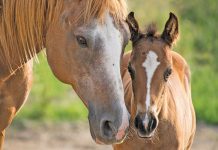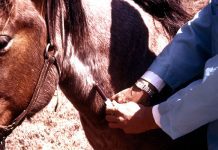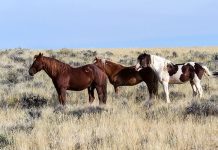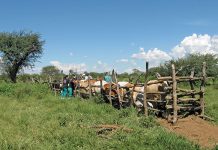Dear Dr OBP
I have a few horses on my farm just outside Stutterheim in the Eastern Cape and my neighbour owns a game farm with zebras. I’m concerned that my horses may contract African horse sickness. What steps have the government taken to protect horse breeders or what can we do as I have heard that zebras can’t contract horse sickness, but are permanent carriers of the disease.
Regards,
Nicky Fletcher, Kinnersley Farm
Dear Nicky
African horse sickness is a non-contagious, infectious, insect-borne disease of equids. Although zebras and donkeys rarely exhibit clinical signs, the effects of the disease are devastating in susceptible horses. Zebras have been considered to be the natural vertebrate hosts and reservoirs of the virus, and are believed to play a significant role in the epidemiology of the disease, especially in Africa.
The presence of the virus (viraemia) in horses can last for fewer than nine days, while in zebras it can be up to four weeks. For successful transmissions to occur, a host, vector and suitable climate are required for the vector to survive. African horse sickness is transmitted by a midge vector called Culicoides (midge) that can still be active at temperatures below 3°C.
It has been established that following good rains over the past few years Culicoides imicola has been the main vector responsible for transmitting the virus. This vector is known to breed primarily in moisture-retentive clayey soils that are nutrient-rich. The vector is absent from nutrient-poor sandy soils, especially coastal ones, and from mountainous terrain (due to rapid moisture runoff).
The second important vector is Culicoides bolitinos and unlike imicola it persists in sandy areas and breeds in cattle dung. The presence of these two vectors places a major portion of SA at risk to outbreaks of African horse sickness. Yes, it’s possible that zebras can contribute to the presence of the virus in your area. However, understanding vector movement, climate change and the role cattle play, has to be considered.
All stakeholders, including horse and game owners, and government have to be responsible for controlling the disease. Unfortunately there is no specific treatment for horses suffering from the disease apart from good management that involves good husbandry and an insect-proof stable. Also ensuring that bedding is not wet prevents midges from breeding.
Controlling vectors with insecticides has not been successful for most horse owners, but vaccination has been known to be the best management tool to successfully control the disease. Try to involve game management and local government authorities to deal with this problem.
Currently, vaccination seems to be the best method of managing the disease using the following procedure: First vaccinate in the correct season (late spring to early summer). Vaccinate at the correct age, which is six months for foals born from vaccinated mares, and at any age if you’re unsure of the history of the mare. Vaccinate annually. The vaccine is available in two bottles • • • (1 and 2) which have to be administered three weeks apart. Both contain seven serotypes in total. For any horse to develop good immunity against all serotypes you need at least three to four successful vaccinations in a period of 18 to 24 months.
If you are still experiencing a disease outbreak in your area, the African Horse Sickness Trust has been established to monitor and take samples from suspected cases. Inform your local vet to collect samples and then submit the invoice to the trust. For more information contact the African Horse Sickness Trust’s Douglas Welsh on 082 965 4082 or Dr Dave Mullins on 082 822 6049. Contact Dr Jacob Modumo, technical manager at OBP on (012) 522 1500 or e-mail [email protected].
We answer your animal health questions Farmer’s Weekly and Onderstepoort Biological Products are joining forces in assisting farmers with their animal health problems through an advisory page in which leading veterinary experts will answer questions from readers. Send your animal health questions to [email protected] or post them to PO Box 1797, Pinegowrie, 2123. Questions and answers will be published in the last issue of every month.












